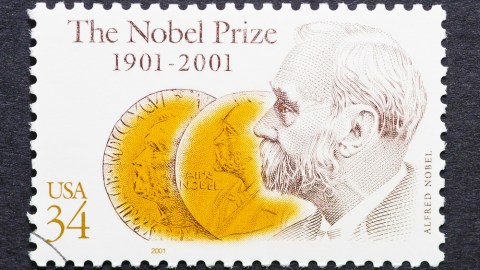What Jean-Paul Sartre’s Refusal of the Nobel Prize Says About the Value of Work

It was fifty years ago that the French philosopher and author Jean-Paul Sartre graciously refused the Nobel Prize for Literature. Just as his work emphasized the ability of individuals to make concrete improvements in themselves and in the world around them (indeed our freedom gives us that responsibility), Sartre declined the Nobel because it would have made him bigger than his words. With a Nobel behind his name, Sartre’s work would be magnified beyond recognition, he said to the committee when it offered him the prize.
“I have always declined official honors,” he explained at the time. “A writer should not allow himself to be turned into an institution. This attitude is based on my conception of the writer’s enterprise. A writer who adopts political, social or literary positions must act only within the means that are his own – that is, the written word.”
Today, it is difficult to imagine any high-profile writer, activist, or politician turning down such a luxurious award (though to be fair, Sartre later realized the prize money could have helped the anti-apartheid movement, then based in London). President Obama gladly accepted the Nobel Peace prize despite the paucity of his efforts relative to other nominees who had already dedicated their entire lives. And when Jerry Seinfeld accepts an advertising award designed to clearly generate publicity, the approach is ironic: he mocks the award while accepting it.
What Sartre still has to teach us is that work, and the value of one’s work, does not require external confirmation. Of course it may be helpful in terms of branding but that is precisely what Sartre wanted to avoid. What a different place his world seems compared to ours.
For a taste of that old-time religion, here is Big Think’s presentation of Dr. Jeffrey Benzel’s lecture on the importance of a classical education:
Read more the Guardian
Photo credit: Shutterstock





